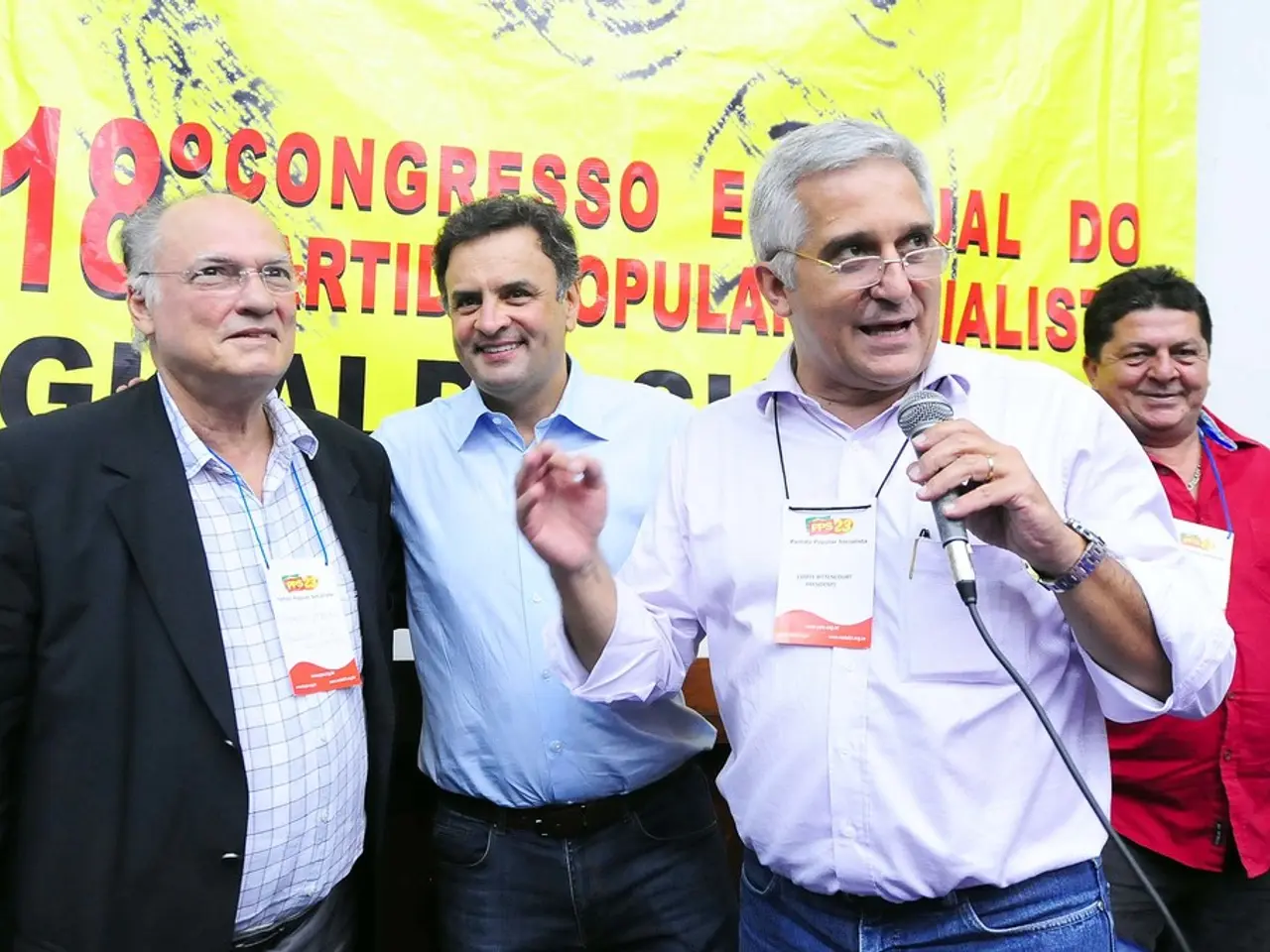Large sums surpassing one million Euros are distributed as allowances to these entities. - Proposals Already Put Forward by the Commission
In the political landscape of Lower Saxony, the issue of faction allowances has become a subject of heated debate, with taxpayer advocacy groups calling for a reevaluation of these payments. The Federation of Taxpayers has criticised the levels of payments, deeming them too high and unnecessary, arguing for a reduction that aligns more closely with fiscal responsibility and the burden on taxpayers.
The SPD, CDU, Greens, and AfD factions in the Lower Saxony State Parliament have varying allowance payments. The SPD, led by new faction leader Stefan Politze, has been the highest recipient, with allowance payments amounting to 449,000 euros. The CDU, under faction leader Sebastian Lechner, follows closely behind with 431,000 euros, while the Greens, led by faction leader not specified, paid the least, totalling only 36,000 euros. The AfD, the smallest faction, had the highest per capita expenses, with over 208,000 euros.
The AfD's parliamentary group leader, Klaus Wichmann, defends these supplements, stating that the five members of their board receive additional remuneration of 50% of a Member's allowance each. This, he argues, is to compensate for increased appointments and enhanced responsibility. The Greens, on the other hand, have chosen a different path, basing their decision to pay only a few allowances on the belief that income differences in the country are already too high.
The CDU, in response to criticism, refers to the legal situation in Lower Saxony, stating that factions decide independently on their budget and functional allowances. They also received the most subsidies in 2024, totalling almost three million euros. However, investigations are ongoing in Saxony-Anhalt, where the public prosecutor's office is investigating several factions on suspicion of misappropriation in connection with supplements for members.
The factions receive legally fixed subsidies, which cover these expenses. The SPD's allowances for working group speakers are considered constitutional as long as they are limited to special tasks. The SPD's new faction leader, Stefan Politze, receives an additional remuneration that corresponds to 70% of the basic allowance for a member of Lower Saxony's State Parliament.
The exact figures for each party’s allowance payments and detailed statements from the Federation of Taxpayers are not included in the provided data. However, this general comparison and perspective reflect the typical debate around political faction allowances in Lower Saxony and similar German states, where taxpayer advocacy groups push for leaner public spending on parliamentary factions. If precise numbers or more detailed opinions are required, additional specific sources would be necessary.
The Commission, amidst the ongoing debate about political faction allowances in Lower Saxony, has also been tasked to propose a directive on the protection of workers from the risks related to exposure to ionizing radiation. This new policy-and-legislation initiative is a motion towards addressing the broader concerns over safety and protection in the realm of politics and general news.
In light of the heated discussions on faction allowances, the proposed directive on ionizing radiation exposure could signify a shift in political priorities, emphasizing workplace safety and legislative measures as an important aspect of fiscal responsibility and taxpayer burden concerns.






